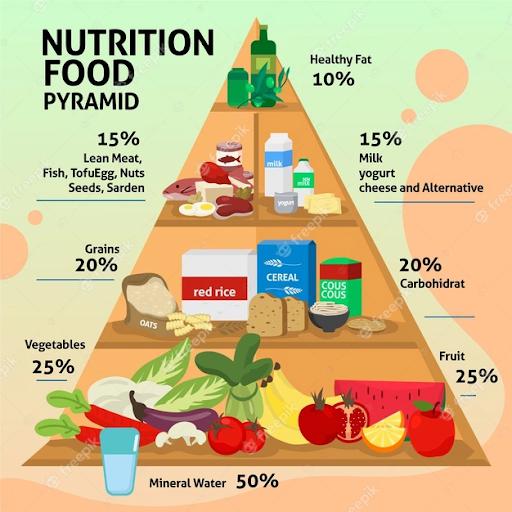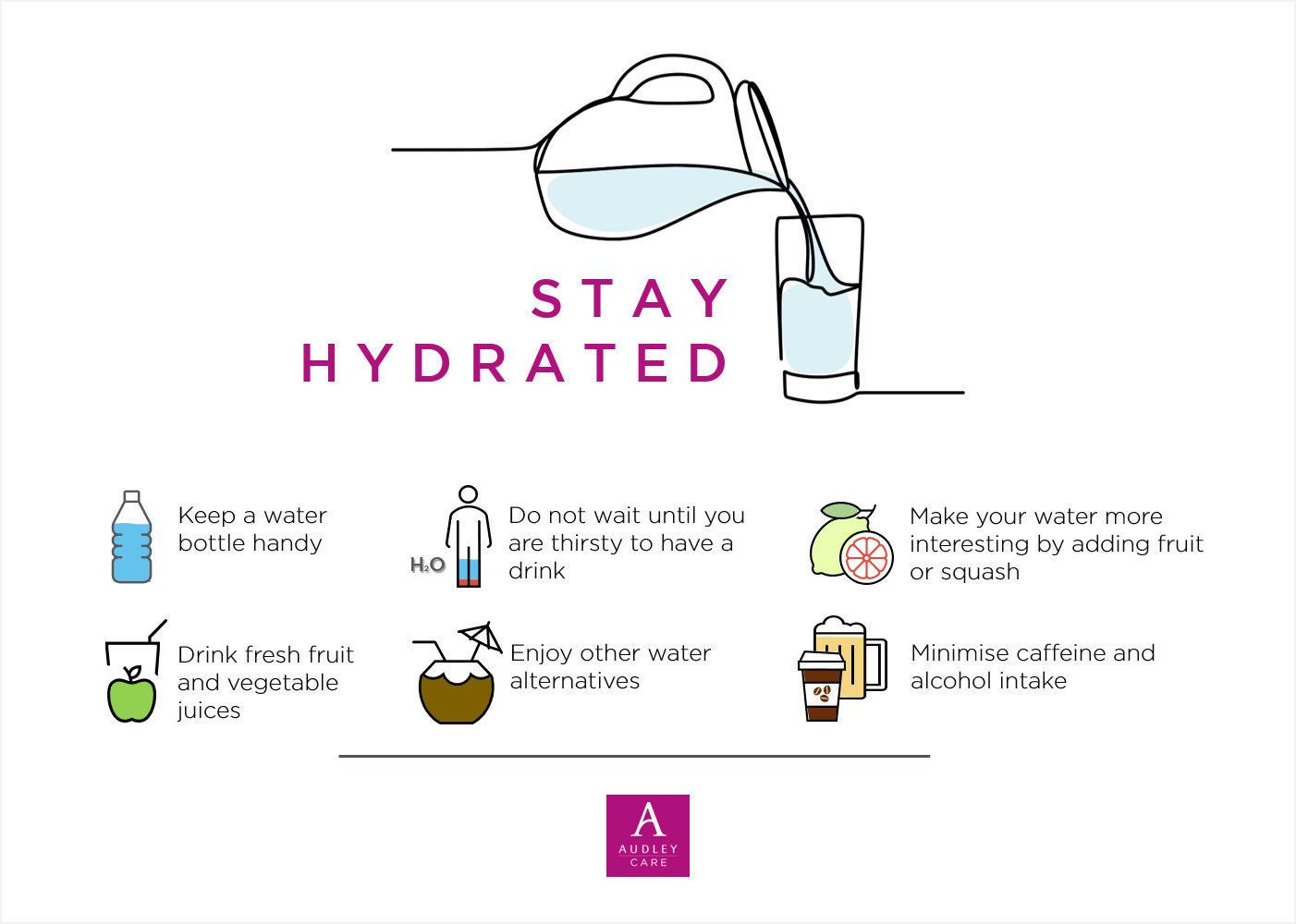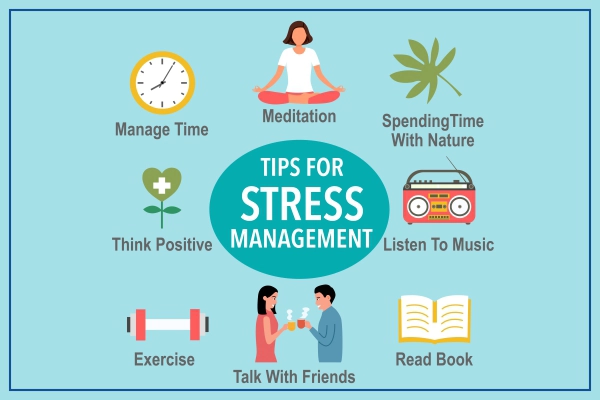A healthy lifestyle requires many tips to follow. Here are best 10 tips for a healthy lifestyle.
Table of Contents
1.Balanced Diet:
A rich diet in a variety of foods is not the only one that is balanced. Just as important as quantity, quality ensures that your body has all it requires to function well were duly satisfied by you. Filling your plate with colorful fruits and vegetables is an outstanding source of vitamins, minerals and antioxidants which promote overall health and help prevent chronic diseases. These natural crops are, for instance, oats, quinoa, and brown rice, which are rich in fiber that helps your digestive system work effectively and also keep you full for longer, thereby reducing overeating risk. Proteins like chicken, fish, tofu, beans are necessary for muscle repair…”Healthy fats” found in avocados/ nuts/ seeds/ olive oil are essential for brain…, hormone production/ … Lean meats,/ sugary snacks,/ yet another treat refined along with trans-fatty acids will undoubtedly stop obesity…, cardiovascular diseases…

2.Stay Hydrated:
Water plays a key role in the proper operating of the body partly because it helps to manage body temperature, lubricates joints and transports nutrients and oxygen to cells. Consequently dehydration may cause fatigue, headaches as well as decreased mental function. Through out the day consuming enough amount of water is important to cleanse your body from toxins and promote good kidney health. Hydration requirement could be different according to age, weight ,activity level and climate so it’s very important to follow your body’s thirst signals and drink accordingly. Besides pure water foods can also keep you hydrated, such as fruits (e.g. watermelon, oranges) and vegetables (e.g cucumbers, tomatoes).

3.Regular Exercise:
Physical fitness isn’t only about a good physical appearance but rather an all-encompassing improvement of health and well-being. Involvement in regular exercises comes with many perks; it can be as simple as boosting the heart and improving circulation, to more advanced ones like preventing chronic diseases e.g heart attack and type 2 diabetes, or their management when already diagnosed. Aerobic activities run along walking, jogging, swimming, cycling among others while strength training workouts include weight lifting and those exercises that involve your body weight. Incorporating flexibility routines like yoga or stretching exercise can help increase range of motion and decrease likelihood of getting hurt. An average of 150 minutes of moderate-intensity physical activity per week or 75 minutes per week of vigorous-intensity exercise is required along with muscle-strengthening contexts, on two or more days every week.

4.Adequate Sleep:
Health as a whole is impossible to achieve without quality sleep, which is why it’s important most people do not appreciate. Quality sleep at night contributes to various bodily functions, one of them being the consolidation of memory besides the immune function, hormone regulation, and tissue repair. One outcome of sleep deprivation is an increased vulnerability to overall health problems such as malaise, obesity, diabetes, cardiovascular issues and mood disorders like depression and anxiety. You should try to have 7-9 hours of sleep each day in your life, and once you’ve set your sleeping schedule, it’s better if you stick to this even on weekends. Also, create a pre-sleep routine that will help you relax and finally will send a signal to your brain that it’s time to walk down, e.g., take a hot bath, practice relaxation techniques, or read a book.

5.Manage Stress:
These days, many people are used to the fact that stress is an inherent part of their lives. Nevertheless, regular stress can do harm to your physical and mental health if you just let it be. Knowing how to deal with stress in a proper way is vital for the sake of well-being. Mindfulness meditation, deep breathing techniques, progressive muscle relaxation, and yoga are effective ways to reduce stress and help the mind stay calm so you can relax better. An abundant source of stress relief techniques includes interests in which one engages as hobbies or other activities, spending time among trees, and friends/family on whom one can rely. Getting the hang of what makes you stressed out is very important, along with devising workable strategies for coping with hard times.

6.Limit Alcohol and Avoid Tobacco:
As it is known that moderate drinking of alcohol has certain health benefits, for example, protecting from heart disease, its excessive consumption can pose dangerous effects on you. Alcohol exploitation may culminate in liver diseases, pancreatitis, certain types of cancers, and mental conditions. If you drink alcohol, then do it in moderation – most often, this definition includes up to one drink per day for women and up to two drinks per day for men. Howbeit, it should not be missed that everybody should not consume alcoholic beverages, like alcoholics or people with some health conditions. Besides the fact that tobacco use is one of the principal causes, there are more people who die because of preventable diseases throughout the world, including various lung cancer, heart ailments, stroke as well as respiratory infections. Giving up smoking and avoiding completely all tobacco products is one of the greatest things you will be doing regarding your health care.
:max_bytes(150000):strip_icc()/things-to-do-instead-of-smoking-2824746-final-a027dc6082194168be1005b7a1ce8a58.png)
7.Maintain a Healthy Weight:
Realizing and safeguarding an ideal weight is fundamental to your continued health and overall well-being. One of the maladies that comes with being overweight is that you run a higher risk of many health issues, inclusive of heart disease, type 2 diabetes, high blood pressure as well and certain cancers. Implement healthy eating patterns, which include a diet rich in fruits and vegetables, lean proteins, and whole grains whilst reducing the consumption of processed foods, sugary drinks, and high-calorie snacks. Pair healthy eating habits with regular physical activity to promote weight maintenance objectives. If required achieve slow but steady weight loss along with seeking advice from a healthcare provider or a dietitian on an individualized plan.

8.Practice Good Hygiene:
Implementation of good personal hygiene can help to thwart the transfer of diseases and infections. Hygiene standards require that you wash your hands more often with soap under running water for at least 20 seconds, specifically after using the restroom, before eating or handling food, and after coughing, sneezing, or blowing your nose. If soap and water not be available, use hand sanitizer, which contains as much as 60% alcohol. Observe covering your mouth and nose with a tissue or elbow. When coughing or sneezing, dispose of tissues properly. Regularly cleaning and disinfecting commonly touched surfaces, including doorknobs, light switches, and countertops, is necessary to prevent the spread of germs.

9.Regular Health Check-ups:
You should make regular visits to your doctor in order to be fit and healthy as well as notice any potential health problems at their early stage. Arrange periodic check-ups, certain tests, and inoculations in compliance with the recommendations of your physician, considering your age, sex, family medical background, and specifics of your lifestyle. Health screenings may involve checking blood pressure, cholesterol levels, blood sugar(s), mammograms, pap smears, or colonoscopies. Be active concerning your health, bringing up any worries or symptoms with a doctor and following their advice on prevention care.

10.Social Connection:
Establishing a wide network of social relationships and maintaining supportive relationships with friends, family, and members of the community are crucial to general well-being. Socialization emotionally helps people by giving support, reducing feelings of being alone or lonely, and increasing mental health and ability to cope. Find time in your schedule to participate in regular social events as well as have meaningful interactions with close people; it can be spending quality time together doing shared activities or hobbies or attending social functions. Concentrate on the creation and maintenance of friendship ties that provide a sense of belongingness, meaning, and fulfillment in life.

